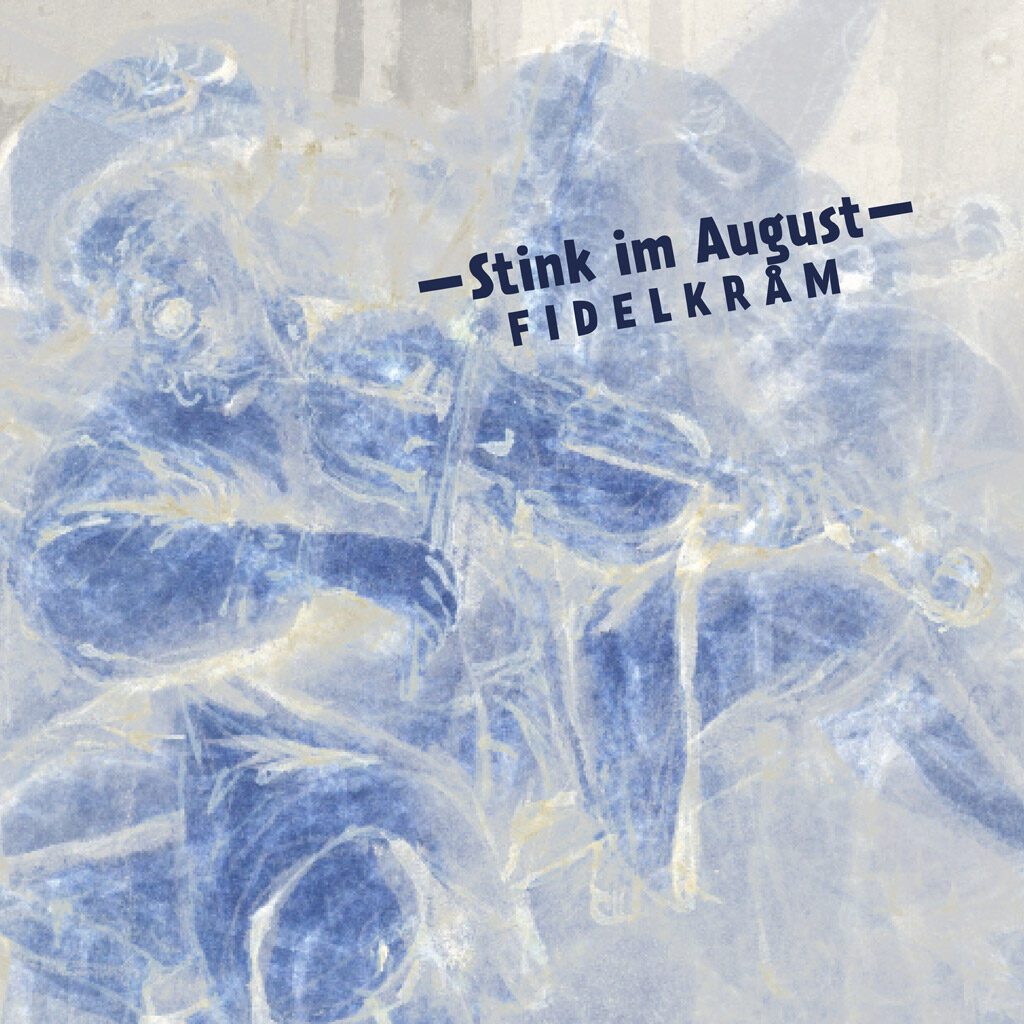Het trio Fidelkråm speelt op Stink im August een selectie van lokale volksmuziek die ze op vrolijke wijze tot leven brengen.
English version below
Violiste Antoinette Lohmann is naast het spelen van klassieke (kamer)muziek, Argentijnse tango, folk, muziektheater of hedendaags werk, ook geïnteresseerd in het spelen van volksmuziek. Dat doet ze nu met haar trio Fidelkråm (lett: Een Hoop Violen-gefiedel). Bovendien doet ze dat onder het pseudoniem Polleke Saitenkratzer samen met Ro Krauss (alias Räuber Kneißl), aangevuld met contrabassist Grommer Imbergen.
Lohmann en Krauss zijn gecharmeerd door de vindingrijkheid, authenticiteit en de onvolkomenheid van volksmuziek. De liefde voor deze muziek is de drijfveer van Fidelkråm. De opnames zijn doordrenkt van spontaniteit, gespeeld in een ongedwongen karakter. De polka, de wals, rondedans, doina (Fummeln Sorbischen Dings) en reidans zijn opgenomen in een live-setting: alles in een keer op de band. Het enige wat nog ontbreekt is het publiek, of beter gezegd het feestgewoel: het Hongaarse dorpsfeest-, de Roemeense bruiloft-, het oogstfeest- of de jaarmarkt-geluiden. Het repertoire op Stink im August is bedoeld als gebruiksmuziek, om op te dansen en te feesten.
Fidelkråm speelt op originele instrumenten zoals de klompviool, de eenvoudige boerenviool of de Sorbische Grobfidel: een 3-snarig strijkinstrument met platte kam, waardoor er akkoorden op kunnen worden gespeeld. Daarnaast klinkt er zo nu dan de bumbass (bumfidl), een soort draagbare cello, waardoor het trio ook al-lopend kan spelen. De eerste viool speelt de melodie, soms met improvisaties, terwijl de 2de viool zorgt voor de begeleiding (soms niet meer dan een liggende toon of akkoordbrekingen: arpeggio’s), al dan niet aangevuld met de bas die, met strijkende stok (con arco), heen en weer pompt tussen tonica en kwint (de zgn. wissel-bas) zoals we dat veel horen in Hongaarse, Roemeense en Roma-muziek.
Stink im August is geen hoogdravend album, maar wel een met eerlijke muziek die vrolijk stemt. Zeker als de zon schijnt, de wijn rood kleurt en de barbecue warm is, brengt deze Oost-Europese signatuur je in een opperbeste stemming.
Voor enkele nummers van Stink im August klik hier
*Voor recensie: Thesauri Inventio 1 & 2 klik hier.
*Voor recensie: Der habile Violiste klik hier.
English version
The trio Fidelkråm plays a selection of local folk music on Stink im August, in a cheerfully atmosphere.
In addition to playing classical (chamber) music, Argentine tango, folk, music theater or contemporary work, violinist Antoinette Lohmann is also interested in playing folk music, like her trio Fidelkråm (lit: Lots of Violin Fiddeling). Moreover, she does so under the pseudonym Polleke Saitenkratzer together with Ro Krauss (alias Räuber Kneißl), supplemented by double bassist Grommer Imbergen.
Lohmann and Krauss are charmed by the ingenuity, authenticity and imperfection of folk music. The love for this music is the driving force of Fidelkråm. The recordings are imbued with spontaneity, played in a casual character. The polka, waltz, round dance, doina (Fummeln Sorbian Dings) and row dance are recorded in a live setting: all the music on tape in one go. The only thing that is still missing is the audience, or rather the party bustle: the Hungarian village festival, the Romanian wedding, the harvest festival or the fair sounds. The repertoire on Stink im August is intended as music for use, for dancing and partying.
Fidelkråm plays on original instruments such as the clog violin, the simple peasant violin or the Sorbian Grobfidel: a 3-string bowed instrument with a flat comb, which allows chords to be played on it. In addition, the bumbass (bumfidl) is occasionally heard, a kind of portable cello, which allows the trio to play while walking. The 1st violin plays the melody, sometimes with improvisations, while the 2nd violin provides the accompaniment (sometimes no more than a flat note or chord breaks: arpeggios), whether or not supplemented by the bass who, with bowed stick (con arco), pumps back and forth between tonic and fifth (the so-called alternating bass) as we often hear in Hungarian, Romanian and Roma music.
Stink im August is not a stilted album, but one with honest music that makes you happy. Especially when the sun is shining, the wine is red and the barbecue is hot, this Eastern European signature puts you in a great mood.
For some songs of Stink im August click here.
*For a review: Thesauri Inventio 1 & 2 click here.
*For a review: of Der habile Violiste click here.
*Fidelkråm: Stink im August (Fidelkråm Recordings)


Geen reacties